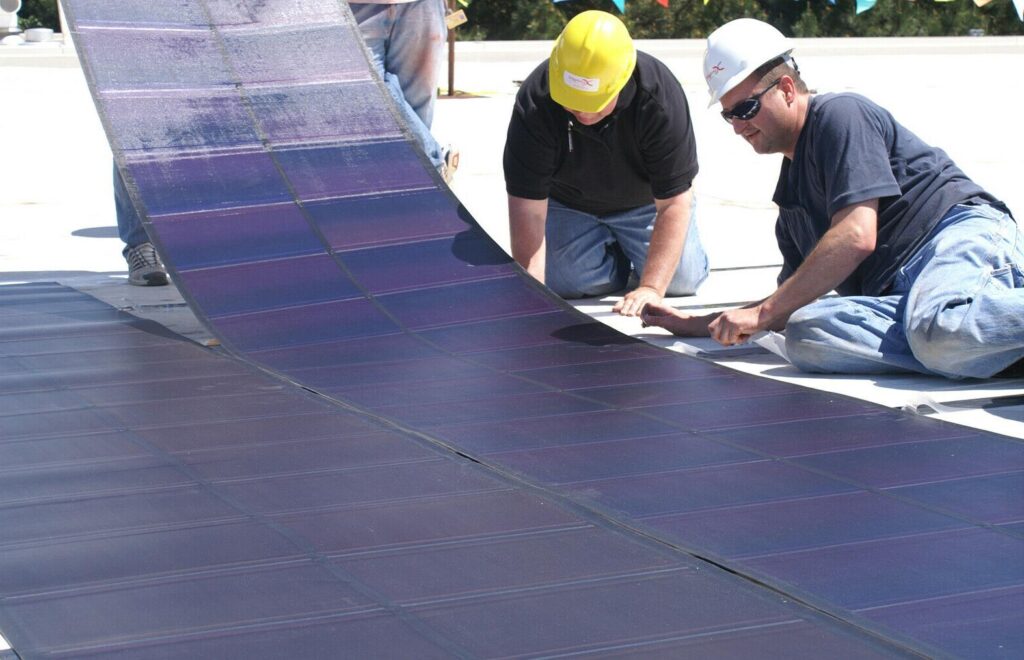Flexible solar panels, also known as flexible solar modules or thin-film solar panels, offer unique advantages due to their lightweight and versatile nature. They can be integrated into various applications where traditional rigid solar panels might not be suitable. Here are some application scenarios for flexible solar panels.
- Outdoor Recreational Gear: Flexible solar panels can be integrated into camping equipment, backpacks, tents, and other outdoor gear to charge electronic devices like smartphones, GPS units, portable lights, and more. This provides a portable power source for outdoor enthusiasts.
- Marine and Boating: Flexible solar panels can be attached to the surfaces of boats, yachts, and other watercraft to generate electricity while out on the water. They can power onboard electronics, navigation systems, lighting, and charging stations.
- Automotive and RVs: Flexible solar panels can be installed on the roofs of vehicles, including cars, RVs, and campervans, to provide a supplemental power source for battery charging, ventilation, lighting, and other systems.
- Agricultural Applications: Flexible solar panels can be used in agricultural settings to power irrigation systems, electric fences, remote sensors, and other equipment needed for monitoring and maintaining crops.
- Emergency and Disaster Relief: Flexible solar panels can provide quick and portable power in emergency situations, helping to charge communication devices, medical equipment, lighting, and other essential tools.
- Building Integration: Flexible solar panels can be integrated into building materials like roofing membranes or facades, allowing for solar energy generation without the need for traditional rigid panels. This can be particularly useful for curved or irregular surfaces.
- Remote Monitoring and Sensing: In remote areas, flexible solar panels can power wireless sensors, cameras, weather stations, and other monitoring devices. These panels are often used for environmental research and data collection.
- Consumer Electronics: Flexible solar panels can be incorporated into various consumer electronics, such as backpacks with built-in charging capabilities, solar-powered chargers for smartphones and tablets, and portable power banks.
- Aerospace Applications: In space missions and satellites, flexible solar panels are used due to their lightweight nature and ability to conform to the shape of the spacecraft. They provide power for communication systems, scientific instruments, and other equipment.
- Art Installations: Flexible solar panels can be creatively integrated into art installations and architectural designs to combine aesthetics with functionality, generating renewable energy while contributing to the visual appeal of a space.
It’s important to note that while flexible solar panels offer many advantages in terms of versatility and integration, they often have lower efficiency compared to traditional crystalline silicon panels. The choice of solar technology depends on the specific requirements of the application and the available space.


